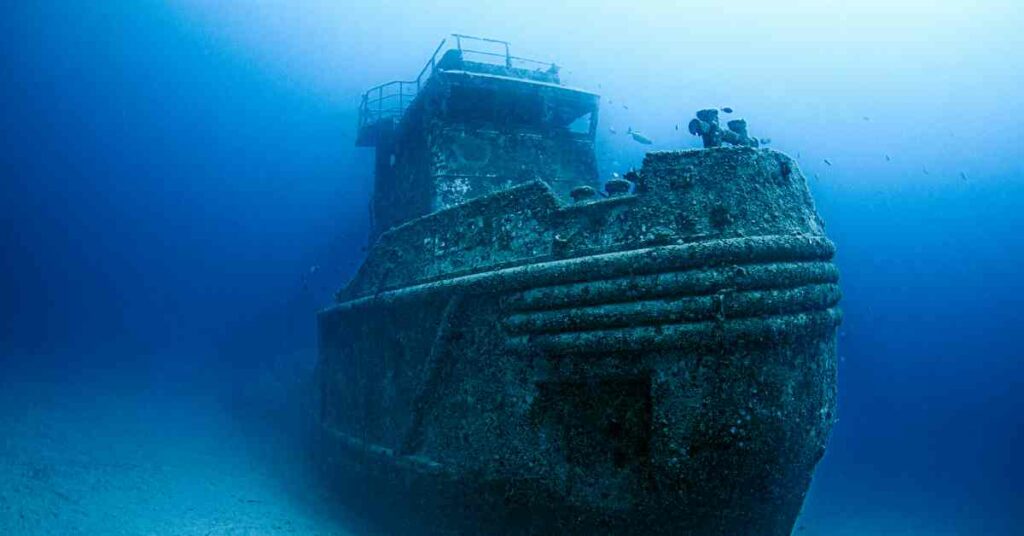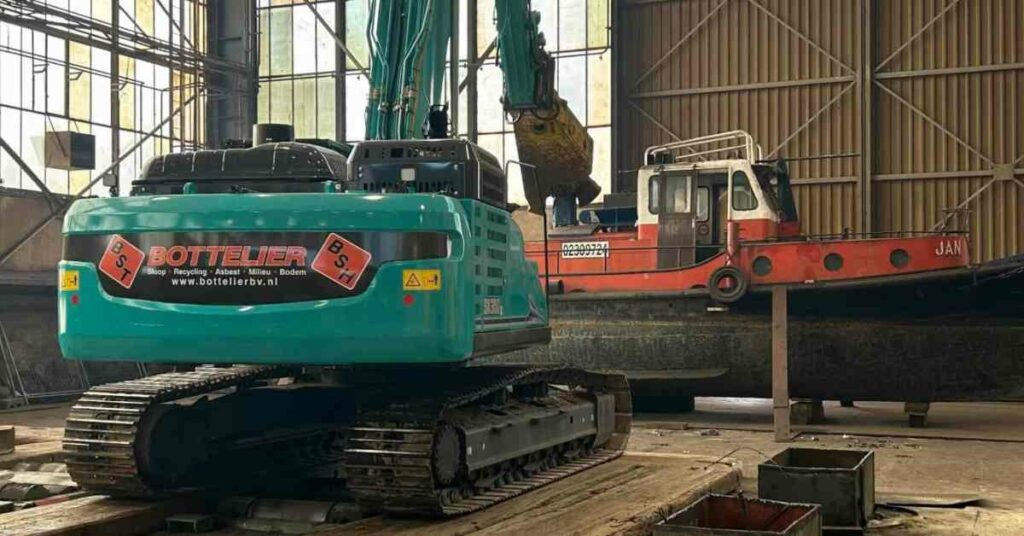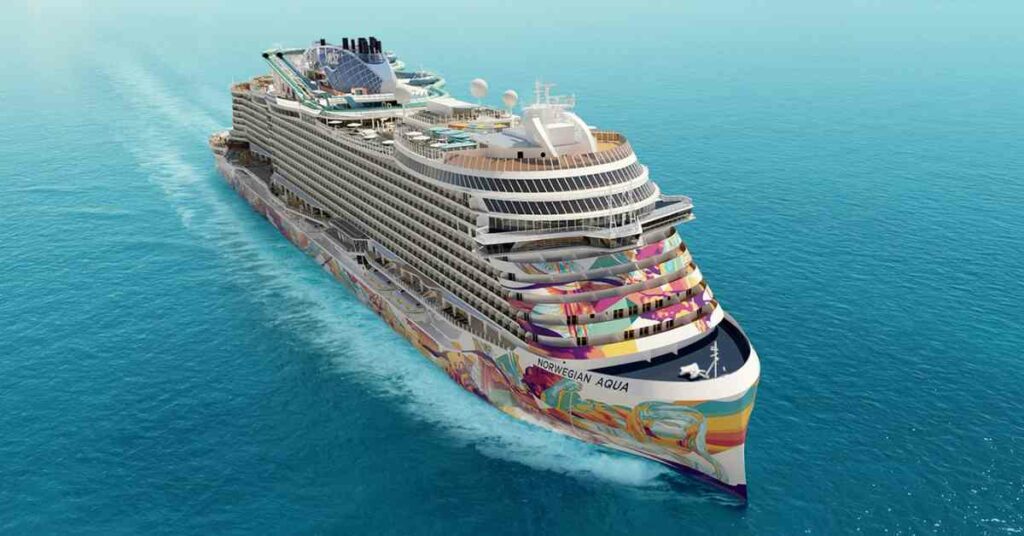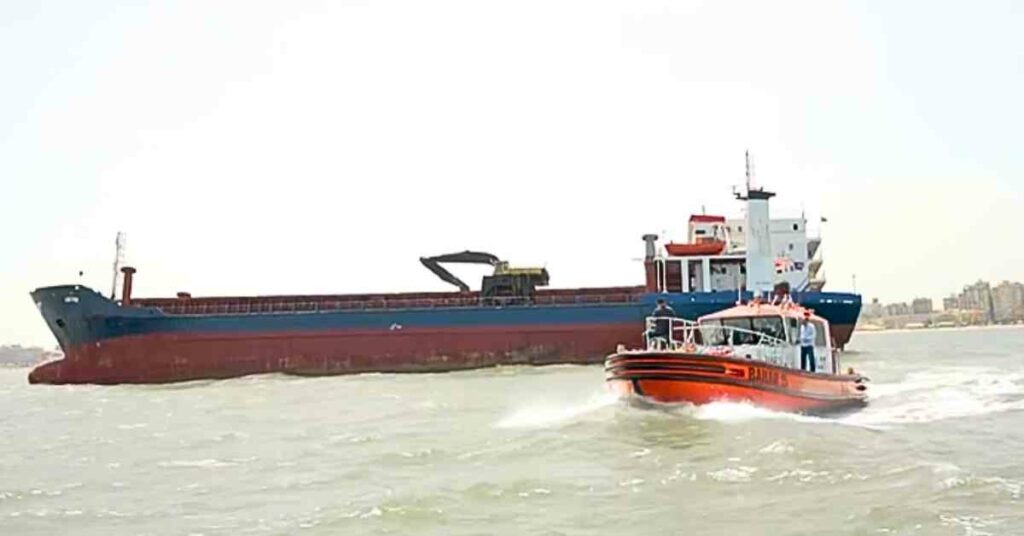Vitol’s V-Bunkers Unveils First Electric-Hybrid Bunker Tanker In Singapore
Vitol’s Singaporean bunker operations company, V-Bunkers, has today announced that they will be taking delivery of its first electric-hybrid bunker tanker, MARINE CHARGE.
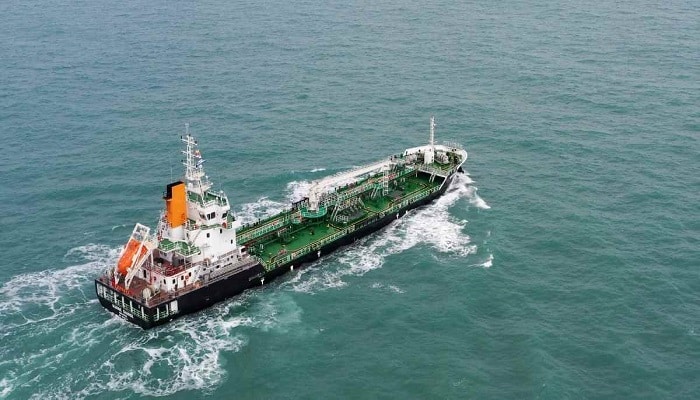
Classed by Bureau Veritas (BV), a world leader in testing, inspection and certification, the electric-hybrid bunker tanker features advanced energy storage and charging technologies that will help curb greenhouse gas emissions (GHG) from port operations in Singapore.
V-Bunkers placed an order to build two of these cutting-edge vessels in 2021, with the second tanker, MARINE DYNAMO, scheduled for delivery in Q2 2023.
These electric-hybrid bunker tankers are designed to significantly reduce carbon emissions in port locations and will be deployed for harbour operations within Singapore.
The vessels have been built by Zhejiang Shenzhou Sunshine Heavy Industry Co., Ltd. and were designed by a Singapore-based designer.
The BV-classed bunker tankers are built with BV’s Electric-Hybrid notation and feature state-of-the-art Energy Storage Systems (ESS) technology, comprising Lithium-ion batteries and a highly automated Power Management System (PMS), to achieve an estimated 10% reduction in GHG emissions.
The design configuration enables the auxiliary engines to operate at the most optimal specific fuel oil consumption (SFOC), while the ESS performs peak shaving during low power consumption periods for usage of stored energy during high consumption periods.
The ESS has recharging capabilities, and while onshore power supply is currently unavailable, the bunker tankers are ready for when charging infrastructure and facilities become available in Singapore.
BV’s ‘Electric-Hybrid’ notation addresses the complexity of electric hybrid system implementation, defining requirements for storage, power distribution, control, and instrumentation, as well as tests that must be carried out to validate power management and critical safety considerations, such as thermal runaway.
Bureau Veritas is continuously working towards the development of a standardised safety framework for on-board batteries, which is crucial as the industry explores various options to achieve carbon-neutral shipping.
Press Release
Disclaimer :
The information contained in this website is for general information purposes only. While we endeavour to keep the information up to date and correct, we make no representations or warranties of any kind, express or implied, about the completeness, accuracy, reliability, suitability or availability with respect to the website or the information, products, services, or related graphics contained on the website for any purpose. Any reliance you place on such information is therefore strictly at your own risk.
In no event will we be liable for any loss or damage including without limitation, indirect or consequential loss or damage, or any loss or damage whatsoever arising from loss of data or profits arising out of, or in connection with, the use of this website.
Disclaimer :
The information contained in this website is for general information purposes only. While we endeavour to keep the information up to date and correct, we make no representations or warranties of any kind, express or implied, about the completeness, accuracy, reliability, suitability or availability with respect to the website or the information, products, services, or related graphics contained on the website for any purpose. Any reliance you place on such information is therefore strictly at your own risk.
Do you have info to share with us ? Suggest a correction
About Author
Marine Insight News Network is a premier source for up-to-date, comprehensive, and insightful coverage of the maritime industry. Dedicated to offering the latest news, trends, and analyses in shipping, marine technology, regulations, and global maritime affairs, Marine Insight News Network prides itself on delivering accurate, engaging, and relevant information.

About Author
Marine Insight News Network is a premier source for up-to-date, comprehensive, and insightful coverage of the maritime industry. Dedicated to offering the latest news, trends, and analyses in shipping, marine technology, regulations, and global maritime affairs, Marine Insight News Network prides itself on delivering accurate, engaging, and relevant information.
Latest Shipping News Articles You Would Like:
Subscribe To Our Newsletters
By subscribing, you agree to our Privacy Policy and may receive occasional deal communications; you can unsubscribe anytime.




